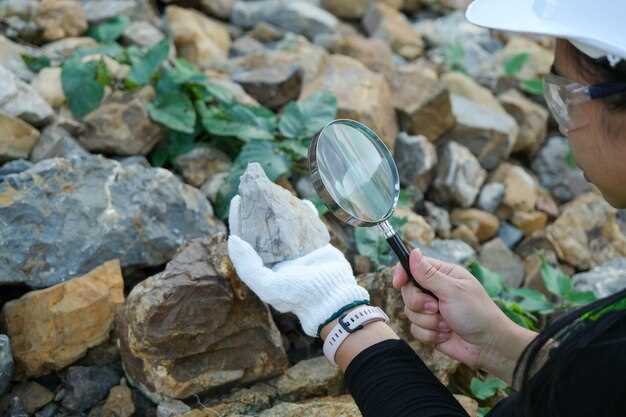
Treasure hunting can be an exhilarating adventure filled with the promise of discovery and the thrill of uncovering hidden riches. However, the journey towards finding that elusive treasure requires thorough research, particularly when it comes to understanding the laws governing local areas. Engaging in treasure hunting without a solid grasp of applicable regulations can lead to legal repercussions and potential losses.
Each region has its own specific local laws regarding treasure hunting, which can encompass everything from property rights to archaeological protections. It’s crucial for aspiring treasure hunters to familiarize themselves with these regulations to ensure they remain compliant while exploring new locations. This involves understanding whether permits are required and what types of activities are permissible in designated zones.
Furthermore, local regulations may vary significantly from one jurisdiction to another, making it essential to conduct precise research tailored to the areas of interest. By investing time in understanding the legal landscape, treasure hunters can not only protect themselves from legal issues but also enhance their chances of successful discoveries. Exploring these legal zones responsibly ensures a sustainable approach to treasure hunting, preserving sites for future generations while allowing adventurers to enjoy the excitement of the search.
Understanding Treasure Hunting Laws by Region

Treasure hunting laws vary significantly by region, making it crucial for enthusiasts to familiarize themselves with local regulations before embarking on their adventures. Different areas may have specific permissions required for conducting searches, and it is essential to understand what is permissible in each location.
In many cases, treasure hunters must obtain permits or licenses to search in designated areas. These permissions may come from local governments, historical preservation societies, or private landowners. Additionally, certain regions have strict laws protecting archaeological sites, which can impact treasure hunting activities. It is vital to research local laws thoroughly to avoid legal repercussions and respect cultural heritage.
| Region | Permit Required | Description |
|---|---|---|
| United States | Varies by state | Many states require permits for treasure hunting, especially on public land and historic sites. |
| Europe | Generally required | Most European countries have strict laws regarding metal detecting and require permissions even for private land. |
| Australia | Region-specific | Permissions vary by state, with specific regulations for areas of historical significance. |
| Canada | Yes | Federal and provincial laws govern treasure hunting, often requiring permits in specific locations. |
Understanding these regional differences in laws and permissions is crucial for ensuring a successful and lawful treasure hunting experience. Engaging with local communities and legal experts can provide valuable insights into navigating these regulations effectively.
Key Permissions Required for Treasure Hunting Activities
Engaging in treasure hunting often requires obtaining various permissions to ensure compliance with local laws and regulations. Understanding these permissions is crucial for successful and legal treasure hunting activities.
Permissions required for treasure hunting can vary widely depending on the location and the nature of the activities involved. Below are the key permissions that treasure hunters should consider:
- Landowner Permission:
Always seek permission from the landowner before conducting any treasure hunting activities on private property. This includes both residential and commercial lands.
- Local Government Permits:
Many local governments require permits for treasure hunting, especially in public areas such as parks or beaches. Check with local authorities to determine the specific requirements.
- Archaeological Permits:
If you plan to excavate or disturb soil in areas of historical significance, obtaining an archaeological permit is often necessary. This ensures that any artifacts are appropriately documented and preserved.
- Metal Detecting Permits:
Some regions have specific regulations regarding the use of metal detectors. Ensure you have a valid metal detecting permit if required in your local area.
- Environmental Permits:
In sensitive ecological areas, you may need environmental permits to ensure that your activities do not harm the local ecosystem. This could include wetlands, protected habitats, or national parks.
It is essential to conduct thorough research regarding local laws pertinent to treasure hunting in your chosen area. Failing to secure the appropriate permissions can lead to legal consequences and may hinder the success of your treasure hunting endeavors.
Identifying Protected Areas and Their Restrictions
When embarking on a treasure hunting expedition, it is essential to identify protected areas and understand the restrictions that apply to them. These zones often include national parks, wildlife reserves, and historical landmarks. Engaging in treasure hunting within these regions can lead to legal repercussions, including fines or confiscation of equipment.
Protected areas are designed to preserve natural and cultural resources. Many of these spaces are governed by strict regulations that prohibit any form of excavation or collecting without proper permissions. Local authorities typically manage these areas, and they enforce rules intended to protect the environment and heritage.
For treasure hunters, acquiring necessary permissions is paramount. This may involve reaching out to local government offices or conservation organizations to learn about specific regulations. In some cases, formal applications might be needed to conduct any search activities legally.
In addition to obtaining permissions, it is crucial to familiarize oneself with any local ordinances that may impose additional restrictions. Some regions have designated zones where metal detecting and treasure hunting are entirely prohibited, while others may allow it under specific conditions. Always consult local guidelines prior to your expedition to ensure compliance.
Lastly, respecting protected areas not only helps avoid legal issues but also contributes to the overall preservation of these invaluable sites for future generations. Being an informed and responsible treasure hunter ultimately enhances the experience and ensures the sustainability of local resources.
Local Ordinances and Their Impact on Treasure Hunting
Local ordinances play a critical role in shaping the landscape for treasure hunting enthusiasts. These regulations vary widely from one municipality to another, affecting where and how individuals can search for hidden treasures. Understanding local laws is essential for anyone looking to engage in this hobby legally and responsibly.
In many areas, local laws may include restrictions on the use of metal detectors, particularly in historical or archaeological sites. Some jurisdictions may require permits for treasure hunting activities, while others may prohibit them altogether in specific locations such as parks, beaches, or protected lands. Ignoring these regulations can lead to fines or legal repercussions.
Additionally, local ordinances can dictate how discovered treasures are treated. Found artifacts may be subject to laws regarding ownership, where local authorities might claim rights to historic finds. It is crucial for treasure hunters to familiarize themselves with these laws to avoid potential disputes over property rights.
Community attitudes can also influence the enforcement of local laws. In areas where treasure hunting is viewed positively, local ordinances may be more lenient, fostering a supportive environment for enthusiasts. Conversely, in regions where treasure hunting is seen as disruptive or undesirable, stricter regulations may be enforced, limiting opportunities for hunters.
Conducting thorough research on local ordinances not only ensures compliance but can also enhance the treasure hunting experience. By knowing the rules and engaging with local authorities, hunters can often find valuable information regarding popular sites and successful hunting strategies that align with the law.
Navigating International Laws for Cross-Border Treasure Hunting

Engaging in cross-border treasure hunting necessitates a thorough understanding of international laws and regulations governingsuch activities. Each country has its own legislative framework that impacts what is permissible in terms of excavation, artifact recovery, and ownership. Consequently, it is critical for treasure hunters to acquire the appropriate permissions before embarking on such ventures.
Different nations may have varying definitions of what constitutes treasure and how it may be legally claimed. For instance, some countries follow the finders keepers principle, while others assert that treasures found in their territory belong to the state. Understanding these distinctions can prevent legal conflicts and potential confiscation of discovered items.
Furthermore, international treaties and agreements can influence these laws. Many countries are signatories to conventions that protect cultural heritage and prohibit unauthorized excavation. To navigate these complexities, treasure hunters should conduct extensive research on both bilateral and multilateral treaties that may affect their activities.
Obtaining the right permissions is paramount. This often involves submitting detailed proposals to local authorities, outlining the intended activities, the locations targeted, and the means of recovery. Failure to secure these permits can lead to significant legal repercussions, including fines or imprisonment.
In addition to national laws, local regulations can also impose restrictions on treasure hunting. It is advisable to consult with legal experts or local stakeholders to ensure compliance with all applicable regulations. This thorough preparation can enhance the likelihood of a successful treasure hunting experience while respecting the legal frameworks in place.
Resources for Staying Updated on Legal Changes
Staying informed about the ever-evolving laws and permissions governing treasure hunting is crucial for enthusiasts hoping to avoid legal issues. Various resources can help individuals keep abreast of changes in legislation and best practices.
Government websites often provide the most reliable information regarding laws related to treasure hunting. These sites typically outline current regulations, permit requirements, and any recent amendments to existing laws. Regularly checking local and national government portals ensures that hunters are aware of any new permissions that may affect their activities.
Legal journals and publications dedicated to outdoor recreation and archaeological practices can also be valuable resources. These publications frequently feature articles and updates on legal developments, case studies, and expert opinions, offering insight into how laws may impact treasure hunting at various levels.
Joining dedicated treasure hunting forums and online communities is another effective way to stay informed. Members often share firsthand experiences regarding legal challenges, updates on legislative changes, and tips for obtaining necessary permissions. Participating in discussions not only enhances knowledge but also helps build a network of contacts who can provide support and information.
Attending workshops, conferences, and seminars focused on treasure hunting and archaeological laws may also be advantageous. Experts in the field often present on recent legal changes and trends, providing invaluable insights that can help hunters navigate the complex legal landscape.
Finally, signing up for newsletters from relevant organizations, including archaeological societies and treasure hunting associations, ensures that enthusiasts receive regular updates directly in their inbox. These newsletters often highlight important changes in laws and permissions that could impact treasure hunting practices.


